The poems in A Samurai’s Pink House are threaded with the transformation of the seasons from Matsuo Basho’s travels to a love affair between a kabuki cross-dresser and a lonely geisha and the struggles of women in ancient and modern-day Japan. The collection takes the reader on a journey through the fascinating culture of Japan with graceful and accessible language. A sensuous, powerful and beautiful collection that moves across rice fields, tea houses, cherry orchards and narrow alleys where characters, in different stages of life, strive to find identity, peace and love.
“The acuity of perception, empathetic sensibility and long imaginative reach behind these poems will authentically transport readers across historical and cultural distances into both the Japan of past centuries and the Japan of today.”
—Allan Briesmaster, author of Against the Flight of Spring and River Neither
“In A Samurai’s Pink House, Sonia Saikaley, author of The Lebanese Dishwasher and Turkish Delight, Montreal Winter, writes slender verses that incorporate spare narratives against an exotic background to explore gender and love in its many guises. Whether it is the girl who learns ‘the fine art of sword swinging’ who is raped by the man whom she must accept as her husband or Basho who shyly discovers attraction to his own sex, whether it is compassion for the victim of a nuclear explosion encountered at Hokkaido Hot Springs or a tender farewell to a Japanese friend after a stay in her country, Saikaley’s verses are sensual and alive to all the finer emotions, including whimsy and humour (cf.‘Basho’s Haiku Goes to the Frogs’).”
—Gillian Harding-Russell
“These are charming poems of ‘sweet, sweet Japan’, written by a well-versed foreigner not just a tourist, one who knows who Basho is and how to shape a haiku. Saikaley walks through Japan with her eyes wide open, noticing everything, writing of Kabuki, geishas, buddhas, cicadas, and the ever-present and ever-lovely cherry blossoms. In this delightful world, anything is possible – a pond on the temple grounds can be frothy green tea and fireflies can be tour guides.”
—Mark Frutkin
“At times wistful and evocative, at other times a provocative exploration of femininity and female sexuality in Japan, this collection captured my imagination until the very end.”
—Leslie Shimotakahara, author of The Reading List and After the Bloom
“Sonia Saikaley’s brilliant new collection draws you on a haunting journey through time and Japanese culture. Cherry trees, rice fields, blossoms, moonlight, teardrops of rain and dew evoke a Zen beauty of discipline and quiet obedience. Sensuousness abounds: the scents of “spring and sea salt”, “sake and green / tea”, “seawater cologne”, “salmon and tuna”; the sounds of “shamisen strings”, “roar / of cicadas and fireflies”; even tastes “of seaweed and sake”, “a salty kiss”. But undercutting this deceptively tranquil surface are private suffering, as personified in poems recounting the passion and eventual subjugation of female samurai in the 17th century and the wanderings of master haiku poet Basho, the secret homosexual longings of a kabuki performer, a geisha’s loneliness, and the homesickness of a transplanted modern day teacher. Writing with a deft and delicate touch, throughout Saikaley skilfully balances the beautiful and the sad. Reading these seemingly quiet, yet so poignant depictions is like tasting exquisite confections with a surprise tang of bitters at the centre. A Samurai’s Pink House is a book I shall delight in returning to again and again.”
—Susan Ioannou
“In this collection of connected poems Sonia Saikaley navigates through the ancient traditions of Japan, still present in modern day, either via memory or expressed in all kinds of living materialities. Ancient and modern Japan appear intertwined with memories of Canada and also the world—and all that extends beyond the world, the vast cosmos.… As the title may anticipate, this collection is also about women trying to escape from the trappings of patriarchal entrenched networks of Japanese society (or any society) to reach a place, real or imaginary, where they are and can be warriors: the Samurais of a new world order where the colour “pink” has the same value as colour blue. A “Samurai’s Pink House” is that incubating sanctuary for a new and necessary order that calls for genders to be equalized, in their difference.…All of this, offered to us in a gentle bath of words, singing with persistence into our ear, into our soul, calling us to a higher order. We are invited to feel and feel and feel: the sorrow, the beauty and deep pain that life is, the great longing for what it could be. Immersed in the body with its calling carnal desires and the weight and pain of the material, we yearn to take off in flight, becoming, becoming, entering the Great Buddha state and exiting the body material. A Samurai’s Pink House speaks of a love—a beautiful love that demands. A love that knows we are beings of the universe and possess a spirit that calls.”
—Irene Marques
“Sonia Saikaley’s “A Samurai’s Pink House” takes us on a trip through Japan and some of its history. The reader meets a woman Samurai, haiku legend Basho, a Geisha, a teacher, and more. The characters are finely woven into a subtle, cherry blossom silk billowing in a breeze. The narrator and a woman she regularly addresses are intriguing figures. Are they really two characters, or are they both the narrator herself, portrayed once in the first person and the next in the third? We may never know. We are, however, happily drawn into the lovely world Saikaley has laid before us. “A Samurai’s Pink House” is a compelling read, difficult to put down.”
—Rod Pederson
“The key characteristics of Iaido, the Japanese art of drawing the long sword in response to sudden attack, best reflect Sonia Saikaley’s approach to writing: immediate, fluid, controlled, and devastatingly precise. Her collection, A Samurai’s Pink House, flicflacs effortlessly between ancient and contemporary Japan. As female warrior-poet, Saikaley draws a blade on custom, tradition and gender schemas. The outcome is both brutal and beautiful. Her precision cuts spill forth the ugly innards of patriarchal society across the ages. Yet, Saikaley is far from being the cold assassin. Her writing is heavy with the sensual pleasures of Japan: the scent of cherry blossom, sake and green tea. The outcome is a collection of poetry that is sharply perceived, with a deep sense of history, executed with the utmost skill and grace.”
– Darren Richard Carlaw, Editor, StepAway Magazine


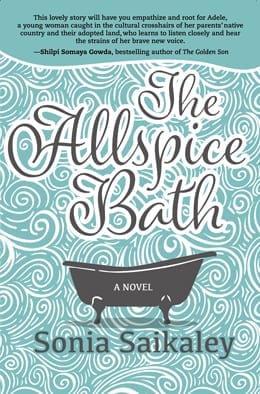
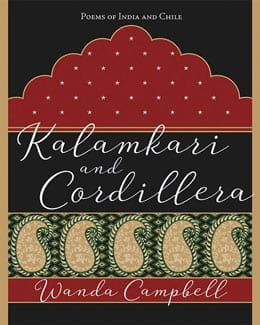
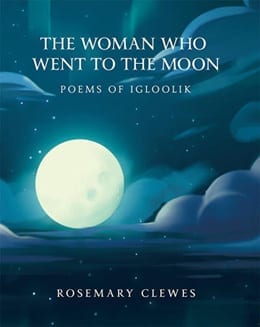

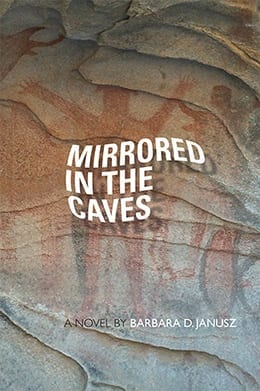
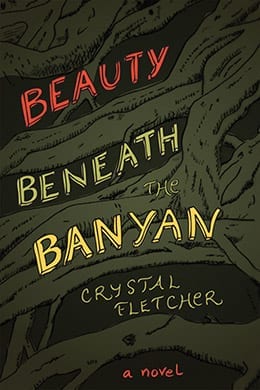
inannaadmin –
A Samurai’s Pink House by Sonia Saikaley
reviewed by Irene Marques
Maple Tree Literary Supplement – May 2018
http://www.mtls.ca/issue23/irene-marques-2/
The Samurai is often associated with honour, courage, aristocracy—and violence too. Being the military high men in feudal Japan, Samurais were bound to a strict code of conduct, the Bushido, literally meaning ‘the way of the warrior’. Their idealized behaviour demanded from them a bravery and a perfection where the softness of the emotions, those intelligences that want to exit the body-politic and its calcified duty, to break the cords that insist on keeping us tied down, could not be fully exposed, only occasionally allowed in acts of kindness and compassion expressed toward the ‘weak’ of society. Restraint and measure were the ways. Perhaps A Samurai’s Pink House is about restraint and the measured ways too, albeit in a different fashion.
In this collection of connected poems Sonia Saikaley navigates through the ancient traditions of Japan, still present in modern day, either via memory or expressed in all kinds of living materialities. Ancient and modern Japan appears intertwined with memories of Canada and also the world—and all that extends beyond the world, the vast cosmos. Everything is bound together, tied up in an intimate and gentle oneness, where the part, feeling the laceration of separation, cries for the whole, like a child does for the mother. As we read through these poems, we have a full sense that we are not alone, we are not, cannot be separate entities, and if sometimes it appears that we are, we feel a void, a yearning and we act quickly to fill it, to repair that broken beautiful egg that we know we are and were meant to be. Like in any good poetry, the local and the here and now are used to feel, apprehend and comment on the universal, the cosmic, the transcendental. The personal surfaces as a letter of intimate loneliness written to a lover that we are trying to call, recover, or just reconnect with via the power of words and the memories that they carry and are capable of conjuring. We move through these poems and ponder upon what it means to be alive, what it means to be a man or a woman, what if feels to be in love or experience the profound longing for what one has lost or anticipates losing when we leave a place, a friend, a lover and go back to our old life, as if this voyage through Japan, was but a brief ephemeral moment—to be remembered in these trenchant and soft words later on, when we are absent from the place that brought them to life. Because to write is to seize moments, make them forever recapturable through the magic of a poetic alphabet that constantly reinvents itself.
As the title may anticipate, this collection is also about women trying to escape from the trappings of patriarchal entrenched networks of Japanese society (or any society) to reach a place, real or imaginary, where they are and can be warriors: the Samurais of a new world order where the colour “pink” has the same value as the colour blue. “A Samurai’s Pink House” is that incubating sanctuary for a new and necessary order that calls for genders to be equalized, in their difference. Is it that envisaged sphere where men and women can grow out of each other, where the other is the Same and the Same is the other, where we discover ourselves in the difference of the other, naturally, gradually, suspending thought and judgement, the ‘grammar’ that has insisted on defining us and which equates violence, a violence to our being, our beingness.
The clear, smooth and crystal-like language of Sonia Saikaley falls on us like gentle kissing cherry blossom petals, calling us to enter what Luce Irigaray calls a “silence”, an “openness that nothing or no one occupies, or preoccupies—no language, no world, no God” (17) in I Love to You: Sketch of a Possible Felicity in History—so that we can BE, experience being without a restrictive a priori. In this space of silence and openness we are called to the responsibility of finding the self in the non-self, the other in the self and the self in the other, all in a delicate beautiful dance that erases and suspends hierarchies, allowing us to be like the Great Buddha, enter and call upon us the great nothingness that is a very rich everythingness: “In simple robes,/no frills, no boa-feathered scarves/Waiting for a long-lost lover’s embrace,/Waiting, waiting, waiting.” The collection is filled with images that conjure up love, expectation, yearning—that eternal and patient waiting of the Great Buddha who knows that the Way can and will arrive. We just have to be resolute and work toward it: it is our responsibility to do so by getting out of ourselves and entering a wholeness that fills and fulfils, a wholeness that is kind to each part that makes it.
The world that the poet takes us into is filled with indigo blue skies, cherry tree blossoms, soft breezes, snowflakes gently kissing our skin, ancient temples and shrines, poets singing to the frogs and frogs singing to the poets, women’s rebellious or passive agency disguised as acquiescence, the live scents of warm tea, its vapours perfuming our souls in an act that merges matter and spirit annihilating our partition, the stunning colour of saffron skies, bodies in daring forbidden acts of love… All of this, offered to us in a gentle bath of words, singing with persistence into our ear, into our soul, calling us to a higher order. We are invited to feel and feel and feel: the sorrow, the beauty and deep pain that life is, the great longing for what it could be. Immersed in the body, with its calling carnal desires and the weight and pain of the material, we yearn to take off in flight, becoming, becoming, entering the Great Buddha state and exiting the body material. A Samurai’s Pink House speaks of a love—a beautiful love that demands. A love that knows we are beings of the universe and possess a spirit that calls.
Works Cited:
Irigaray, Luce. I Love to You: Sketch of a Possible Felicity in History. New York: Routledge, 1996.
inannaadmin –
Review of A Samurai’s Pink House, poems by Sonia Saikaley
News from the Feminist Caucus – July 6, 2017
The title poem depicts a ghost as seppuku victim (meaning an honourable suicide practiced by samurai, after shame or failure). A pregnancy of sensei meaning master, elder, is a Japanese honourific title that is literally translated as “person born before another”. The cut
of the blade sounds like a caesarean section but ritualized in this strange land.
This feminist collection offers a rape, in “The Obedient”, by a man who forces a tsunami. Her lust tires the sumurai (“When Men Aren’t Enough”); Tsukiyomi, the moon god, is invoked. A female warrior was known as an onna-bugeisha now domesticated. (The titled “Shielded Memories”, a double meaning of “shielded”, as sheltered, or military.) The other woman of the Edo period learned martial arts. (“The Last Female Samurai”) There are Obon festivities in Japan during the summer months. Many residents return to their home towns in order to worship the spirits of the ancestors. (“Obon Conception”) Styles of dance vary, but the summer kimono is worn when joining the circle. She joins her mother, but returns presumably to prepare traditional dishes. (“Photograph of Self”) A husband’s farewell gift is his death. (“In the Hot Spring of Healing”) The weapon of choice is a pole blade, for ritual suicide by disembowelment. (“Unhonourable Fantasy” instead of “Dishonourable”) Sadness “curled through her”. (“Kyoto’s Koyo”)
Saikaley lived and worked very near where the Haiku master Matsuo Basho wandered. His spirit embraces a papier-mâché sculpture. (“Modern Matsushima”) Frogs receive the words and sing praise. He chose plain dress, apologetically. (“White Pink Yellow”) His mother prepared food proudly for her son. (“Grief”) His memories of her are visceral and compelling. (“The Red Bridge”) The poet wonders about his inspiration. (“The Kitchen Worker”) “Breathe, breathe, breathe”. Beef may cause unrest not only for living vegetarians but among the already dead.
“For O.” is a minimalist haiku. Basho experimented sexually. (“An Advanced Thinker”) He was Buddhist. (“Holy Scroll”) Rice paper, ink and tip are his writing implements. (“A Holy Scroll”) A miko in Shinto is a shrine maiden or a supplementary priestess. (“The Miko”) His rustic home was a place of grief. (“Turn of Summer”) The travelling poet was called to eat at a type of informal Japanese gastropub, where he is toasted. A woman dreamt about Basho (“The Maiko’s Obi”) and he encounters a geisha house. She reveals her real name. (“Pink Moonlight”) Makeup and costumes reveal the lust. (“The Kabuki Actor”) A companion poem is “The Kabuki Cross-dresser”. Male actors play female roles. (“Spring”) Another actor imagines suicide. (“Tokyo Kabuki”) Note the onomatopoeia in the sound of the clappers.
The woman “sometimes fucked for yen/ rather than choice.” (“Geisha Meet Onnagata”) An unusual couple appear to be a lesbian pair, “pink petals on naked skin”. (“Leaving the Geisha House”) Her topknot was cut when she came of age. A man paid a high price to take her virginity.
Lust has a shade, “pulling apart”, “separate again.” (“Candescent”) He made her false promises. (“The Single Geisha”) Sorrow and cold (“Autumn’s Emptiness”) The Philosopher’s Path is an actual pedestrian pathway and the unopened letter. (“Cupid’s Aim”) She appears to be another woman who is missing. Prostitutes (“The Red Light District”) and “possibilities”.
A young woman makes good on a promise to her mother. (“Kimono Days”) Her fate is unfolded. (“Best Fortune”) Her lips on foreign mouths. (“Something More”) Faded Buddhist figurine in the cemetery. (“The Scarecrow”) Short skirts (“Sunrise on a Train”), he inches closer (“Late Night Train”); her leaving Japan for Carnegie Hall and the Statue of Liberty. (“The Music Teacher”) “Love in a new language”, and a blanket (“Snow Angels”); the god of the moon and a used futon mattress (“Blue Rooftops”) Note a love ballad or tragic song (“The Language of Frogs”), she only manages sign language. Foreigners alert cicadas (“The Long Commute”), students call “See you”. The instructor learns the local customs. (“The Art of Patience”) A candle-lit paper lantern farewell (“The Return to Ancestral Graves”); she will miss one of her students. (“Another Farewell”) Stars lead lovers together (“In the Milky Way, a prose poem); a crane still and calm. (“Zen Concentration”) The ultimate movie star (“The Great Buddha”); the early world. (“Ancient World”) Black ink on a page represents an obituary notice. (“Conquering Fuji-san”)
Women bathe (“Midnight Baths”); “her skin folded in scarred flesh, / grown hard with age.” Compare this with children, whose “flesh is still pure and unblemished.” (“Gifts from Grandchildren” not to). Bows instead of handshakes are the custom. (“Basic Commodities”) A cream-coloured letter, in an envelope (“The Letter”); “My dear, how are you?” An “onsen” is a Japanese hot spring. The washer “gurgles and chokes”, whereby an apology is in order. (“Spring in Northern Japan”) She imagines being replaced (“Hokkaido Hot Springs”); the sea opening itself to him. (“A Fisherman’s Love”) The bar is a casual place for after-work drinking. (“A Lost Soldier”); a standing bar is for foreigners. (“Typhoon Season”) “Taihu” is a Chinese greeting, while “kanpai” is a Japanese one. Her elephant futon offers a ride in dreams along a beloved’s body (“An Elephant Ride”); rain and alcoholic sake overflow. (“Hanami in Spring”)
Saikaley participated in the Japanese Exchange and Teaching Programme, in 2007-2008. She says that she has some historical understanding but the rest was based on her imagination. Other books are: The Lebanese Dishwasher, a novella (Quattro Books, 2012); Turkish Delight, Montreal Winter, a poetry collection (Mawenzi House, 2012;, and Jasmine Season on Hamra Street, a novel (a work-in-progress).
inannaadmin –
A Samurai’s Pink House by Sonia Saikaley
reviewed by Candice James, Canadian Poetry Review – June 15, 2017
https://www.facebook.com/permalink.php?story_fbid=1132667863532176&id=548677701931198&substory_index=0
A Samurai’s Pink House is a collection of sensual, esoteric and cultural poetry with a tribute to master haiku poet Basho riding roughshod throughout. Intimacy and isolation, relationship and distance, and joy and sorrow walk hand in hand through the pages often crossing paths with wisdom and naivety.
In her poem “The Red Bridge” she imagines Basho crossing a bridge and seeing his mother’s ghost in the water and he weeps then seeks solace in a park: “He thought he saw / mother’s reflection in the bay / her outline dotting calm waters / teardrops rippling waves / Heavy footsteps quaked / the wooden planks / he wiped his eyes, / side-stepped tourists over the bridge / until he reached the soft bark / of a pathway with pine trees.”
.
Opening with vivid imagery and a surreal mood, Saikaley’s poem “Cupid’s Aim” leads us with a slight feeling of trepidation through the indecision and insecurity of the “letter of love” and “love letters”: “The shadow of the son of Venus / darkened footprints in the snow / as she walked the Philosophers’ Path alone.”
“Blue Rooftops”; gives the reader a glimpse into the unkempt conditions one will put up with to pray and stay at a “Shrine”: “At the Shiogami Shrine I bow / and pray as the copper bells / toll across blue rooftops.” The poet sleeplessly and uncomfortably lies on the stained mattress of a worn-out futon: “Staring at the ceiling I imagine / how many people could’ve slept / on this worn mattress”
The fragility of sorrow and loss are deftly depicted in picturesque imagery in the poem “Return to Ancestral Graves”: “We leave the platform / walk a dimly-lit road / past fireflies rising / stars above rice fields. /// a distant dog howls goodnight /// A candle-lit paper lantern floats away / Midori and her parents kneel / on the riverbed, weep another farewell.” ‘”
Travelling through A Samurai’s Pink House is a journey through the portals of time and tide as they flow through the Zen beauty and historical culture of Japan… a journey both enlightening and, at the same time, haunting.
About the Reviewer: Candice James is in her 2nd three-year term as Poet Laureate of New Westminster. She is past president of both Royal City Literary Arts Society and Federation of British Columbia Writers; and author of thirteen poetry books: the first A Split in The Water (Fiddlehead Poetry Books 1979); and the most recent are The Water Poems (Ekstasis Editions 2017); and City of Dreams-the New Westminster poems (Silver Bow Publishing 2016). Her awards include the Bernie Legge Artist Cultural Award and Pandora’s Collective Citizenship award. She is the founder of the annual “Fred Cogswell Award for Excellence in Poetry”; Poetic Justice; Poetry in the Park; Poetry New Westminster and Royal City Literary Arts Society. Further info at website: http://www.candicejames.com and Wikipedia: https://en.wikipedia.org/wiki/Candice_James
inannaadmin –
‘A Samurai’s Pink House’: A complicated stew of poetry
The Japan Times – July 9, 2017
http://www.japantimes.co.jp/culture/2017/07/08/books/book-reviews/samurais-pink-house-complicated-stew-poetry/#.WWNtOVGQyM-
There’s a lot of pink in Sonia Saikaley’s latest collection of poetry. Given the fairy tale-like title, the deluge of sakura-related imagery was expected. The blood from rape instead of battle, was not.
As frustrating in its first half as its second half is soulful, “A Samurai’s Pink House” is a complicated stew of bungled opportunities peppered with graceful insight.
The opening poem immediately throws itself down an uncomfortably familiar path that trades the possibility of exploring a female samurai’s heroics for the depiction of a submissive, eroticized Japanese woman dreaming of freedom and reclaimed sexuality amid rigid social structures.
“Another baby suckled her breasts,/ demanded attention./ After every feeding, she went to the kitchen,/ prepared dinner for her husband,” — this is depressingly stereotypical.
Saikaley’s inclusion of geisha, kabuki actors, and biographical musings on Matsuo Basho feel largely hurried and detached. It’s a shame, because her verse shines once she shifts to the details of her own everyday struggles, triumphs, and relationships.
“You spoke through the hazy film/ and with your mouth slightly open, you swallowed/ winter’s coldness, and gave me spring.” is the lovely conclusion of an onsen adventure. Quiet apologies to a finicky washing machine and conversations during a holiday with a grieving friend channel a previously absent poignancy.
This poignancy doesn’t erase the collection’s shortcomings, but it does make for a pleasant counterbalance.